Islamic State Reform Proposal by Hezbut Tawheed at Amir Conference 2024
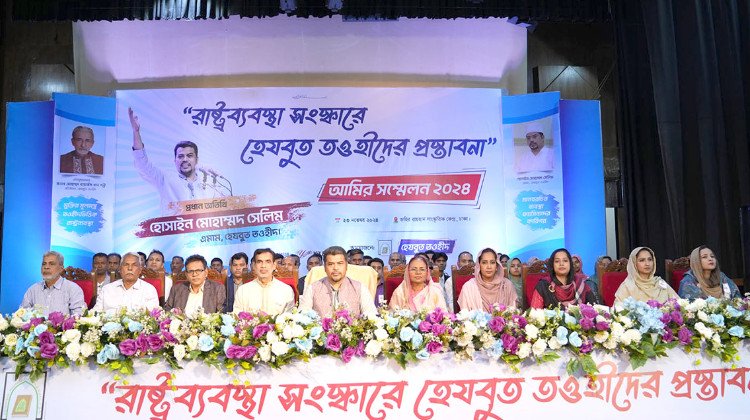
On November 23, 2024, Imam Hossain Mohammad Salim, the supreme leader of Hezbut Tawheed, delivered a thought-provoking speech at the Amir Conference 2024, held at the Zahir Raihan Cultural Center in Dhaka. He argued that human-made laws and systems are flawed, and that only the divine guidance of the Quran can establish true justice, fairness, and peace. His proposal suggested a radical transformation of Bangladesh's governance, drawing inspiration from Islamic principles and the system established by the Messenger of Allah Muhammad (PBUH).
Overview of the Conference and Key Proposals
Human-Made Systems: Ineffective and Unjust
Imam Hossain Mohammad Salim began by pointing out that, since the independence of Bangladesh, various forms of government and political reforms have failed to address the core issues of inequality, injustice, and corruption. Despite uprisings and changes in leadership, the aspirations of the people have remained unmet. He proposed that reforming human-made systems would not suffice, as they are inherently flawed and incapable of creating a truly just society. Instead, he emphasized the need for a system based on the divine guidance of Allah, which is free from discrimination and ensures justice, peace, and equality for all.
The Divine System: A Blueprint for Reform
Imam Salim's proposal was rooted in the belief that a system based on Islamic principles, specifically the laws of the Quran and the teachings of Messenger Muhammad (PBUH), is the only way to establish a just and peaceful society. He proposed a comprehensive reform plan for various sectors of state governance, including:
A Vision for an Islamic Governance System: Unity, Justice, and Equality
In a world where political ideologies often divide nations, the proposal for an Islamic governance system advocates unity under a singular framework based on shared values. It envisions a peaceful, just, and equitable society rooted in Islamic principles. The system emphasizes governance, social justice, economic fairness, and personal freedoms, all while remaining deeply committed to the teachings of Islam.
Summary of the Main Proposal
Governance System: Unity Over Division
At the heart of this vision is the concept of a unified state, free from political parties based on differing ideologies. The idea is to break down the barriers of race, religion, ethnicity, and political belief, creating one cohesive society. The foundation of this unity is the example set by the Messenger of Allah Muhammad (PBUH) and his companions, who formed a unified nation under the Constitution of Medina, transcending tribal divisions. In this system, the focus is on collective progress and national unity.
Mosque-Centric Governance System: Leadership Rooted in Faith
One key feature of this governance system is its Mosque-Centric approach, where mosques serve as central hubs of governance, community engagement, and social justice. Mosques are not only places of worship but also centers for community leadership, education, and social services. The Imam or mosque leaders play a vital role in shaping policies, promoting justice, and ensuring the welfare of the community. This decentralized yet spiritually connected system ensures that governance remains close to the people, fostering a sense of shared responsibility and accountability.
Administrative Structure: Clear Leadership and Functionality
The administrative structure of this Islamic governance system is based on clear leadership roles and responsibilities. The state will be governed by appointed leaders who are chosen for their integrity, wisdom, and ability to manage public affairs, rather than through elections or political parties. The structure ensures that the leaders serve the people, and that the administrative bodies are designed to function effectively, with checks and balances to avoid corruption and mismanagement.
The leadership hierarchy will consist of the Imam at the top, who is the spiritual and political leader, followed by various officials responsible for different branches of governance, including finance, defense, and social services. Each official must ensure that the laws of Islam are upheld and that justice is served. This clear structure avoids the chaos of competing political parties and provides a streamlined, unified approach to governance.
Political Parties: A Thing of the Past
The idea of political parties, as seen in modern democracies, is rejected in this governance system. Instead of multiple factions based on differing ideologies, the focus is on collective good and adherence to Islamic principles. By eliminating political parties, the system seeks to remove division and create unity, where leaders are selected based on merit and ability to serve the public, rather than political affiliation. The focus is on creating a cohesive nation, unified in purpose and goals, under a leadership that prioritizes justice and the welfare of its people.
Judicial System: Justice for All
A fair and impartial judiciary is the cornerstone of this governance model. The judiciary is independent, with its decisions based solely on the laws prescribed by Allah. Justice is blind to wealth, status, or origin, ensuring equality before the law. A key principle is that justice should be free and accessible to all citizens, with local courts handling most cases to avoid overcrowding at higher levels.
Economic System: Fairness Over Exploitation
The economic model rejects both capitalism and socialism, advocating instead for a system that encourages wealth circulation rather than accumulation. Islam’s approach to wealth emphasizes charity, fairness, and the elimination of usury, which ensures a more equitable distribution of resources. The government will regulate financial practices to prevent exploitation and poverty, and systems like Zakat (charitable giving) will play a central role in addressing societal inequality.
Education: Knowledge for the World and the Hereafter
The proposed education system aims to unify the fractured structures left by colonial powers. It seeks to combine ethical teachings and religious studies with science, technology, and vocational training. The goal is to produce well-rounded, patriotic citizens who are not only knowledgeable but also morally grounded, ready to contribute positively to society without resorting to corruption or exploitation.
Law Enforcement: A Just and Accountable System
In the proposed governance system, the police force will focus on promoting good and preventing wrongdoing. They will assist those doing good and remain impartial, not influenced by any specific group. The police will be accountable to higher authorities and will only intervene in serious crimes like murder, theft, corruption, and violence. They will arrest criminals based on clear evidence and will not engage in inhumane actions such as torture or detention without cause. Their goal is to protect individual rights and maintain social harmony.
Military Force: A National and Global Responsibility
In the proposed governance system, defense is not just the responsibility of a professional military but of the entire nation. Drawing inspiration from the practices of Prophet Muhammad (PBUH), every citizen, both men and women, will undergo basic military training, including discipline, physical fitness, weapons handling, and first aid. This ensures national security and readiness for defense. The military will also play a global role, intervening where human rights are violated or injustice occurs. The system includes professional branches such as the army, navy, air force, special operations, and cyber forces, all contributing to both national defense and global peacekeeping efforts.
Healthcare: A Right, Not a Privilege
Healthcare is seen as a fundamental right under the proposed system. Citizens will have access to free medical care, ensuring no one is deprived of necessary treatment due to financial constraints. The system will also embrace both traditional and alternative medicine practices, aiming for a holistic approach to health and well-being.
Criticism of the Ruler and Accountability
In this Islamic governance system, accountability is paramount. The ruler, or Imam, is not above the law. They are subject to criticism, oversight, and are held accountable for their actions. The concept of Shura (consultation) plays a vital role in ensuring that the ruler governs with justice and in the best interests of the people. Citizens have the right to question decisions, propose alternatives, and demand transparency in governance.
Imams and leaders are required to adhere to ethical standards and Islamic principles, and failure to do so results in accountability measures. If a leader is found guilty of injustice, corruption, or mismanagement, they are subject to removal from office. Public accountability ensures that the system works for the people, upholding the values of justice and fairness in all aspects of governance.
Freedom of the Press and Speech: A Right to Express
In this governance system, freedom of the press and speech is an essential pillar of democracy and justice. People are allowed to freely express their opinions, as long as it does not harm public order, national security, or societal harmony. The press will act as a watchdog, ensuring that leaders remain accountable and transparent in their actions. The media and citizens alike can raise concerns, criticize policies, and offer solutions, contributing to a healthier, more participatory governance.
While freedom of expression is encouraged, it comes with a responsibility to ensure that speech does not incite violence, spread falsehoods, or undermine the unity of society. The state will work to strike a balance between free speech and the overall well-being of the community.
Women’s Rights: Equality and Opportunity
The Islamic governance system ensures women are empowered and provided equal opportunities in all aspects of society. While leadership positions like the Imam of the entire Muslim ummah will remain reserved for men due to practical considerations, women will be encouraged to participate in every other field, from education to government roles, based on their skills and qualifications. Modesty and respect for all women’s rights will be fundamental to this system.
Behavior Towards People of Different Religions: Respect and Tolerance
In this system, people of different religions are treated with respect, tolerance, and justice. The state guarantees the freedom to practice any religion while ensuring that no one is persecuted based on their beliefs. Religious minorities will have the freedom to establish their places of worship, and they will be protected under the same laws of justice and equality. The emphasis is on fostering peaceful coexistence while upholding the core principles of Islamic ethics.
Cultural and Sports Sectors: Community and National Pride
The cultural and sports sectors are essential components of this governance system. They foster national pride, unity, and development. Cultural programs will be designed to preserve and promote the rich history and values of the Islamic world while encouraging creativity, innovation, and the celebration of diversity. In sports, the focus will be on physical well-being, team spirit, and national representation in international events, encouraging youth engagement in healthy activities and teamwork.
Labor System: Fairness and Respect for Workers
The labor system will be grounded in fairness, respect for workers’ rights, and just wages. Employers will be obligated to provide decent working conditions, fair wages, and benefits for all workers. Exploitation and abuse in the workplace will be actively prevented, and workers will have the right to voice their grievances and seek redress in cases of injustice.
Foreign Relations: Peaceful Diplomacy and Justice
In foreign relations, the proposed system will prioritize peaceful diplomacy, human rights, and justice. The state will seek to establish relations with other nations based on mutual respect, cooperation, and the shared goal of global peace and prosperity. The military will be used only in cases of legitimate defense or to protect the oppressed.
Conclusion: A Just and Peaceful Society
Imam Hossain Mohammad Salim’s vision for Islamic governance, as presented at the Amir Conference 2024, offers a radical rethinking of the state system, based on the belief that only the divine guidance of Islam can create a just, peaceful, and equitable society. His proposal calls for the establishment of a unified state, a mosque-centric governance system, and a commitment to justice, fairness, and equality. The system emphasizes accountability, equality, and the welfare of all citizens, while also promoting global peace and cooperation. It presents an alternative to the political chaos and corruption of human-made systems, offering a vision of governance that is deeply rooted in the teachings of Islam.
Images Related to this Post

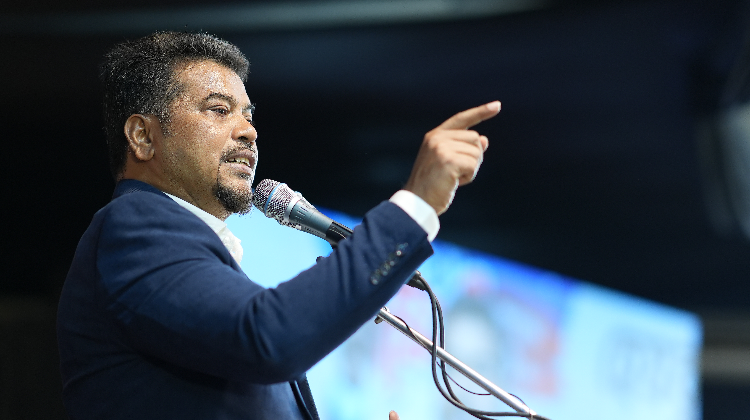
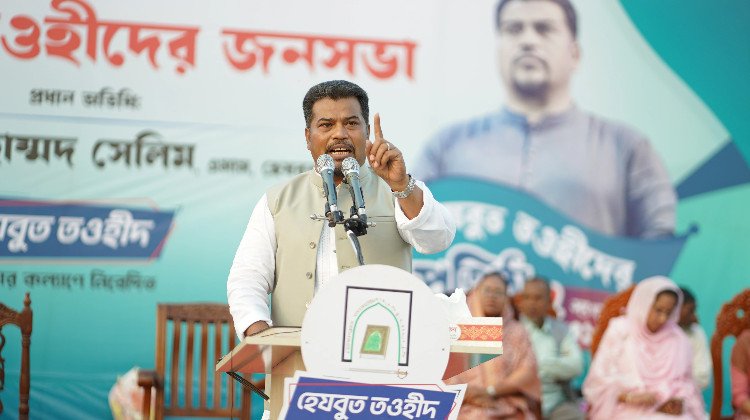
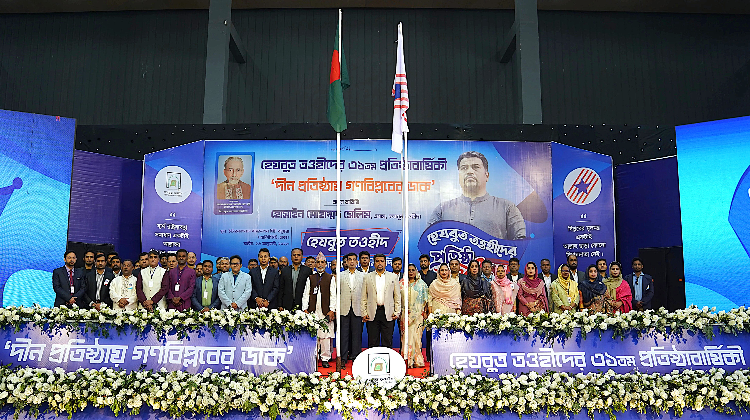
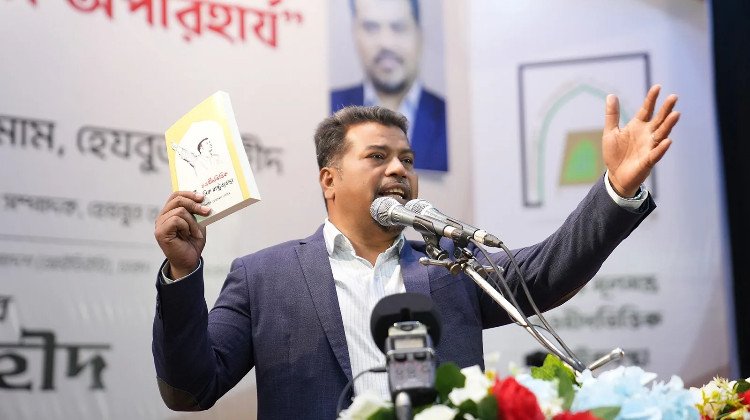
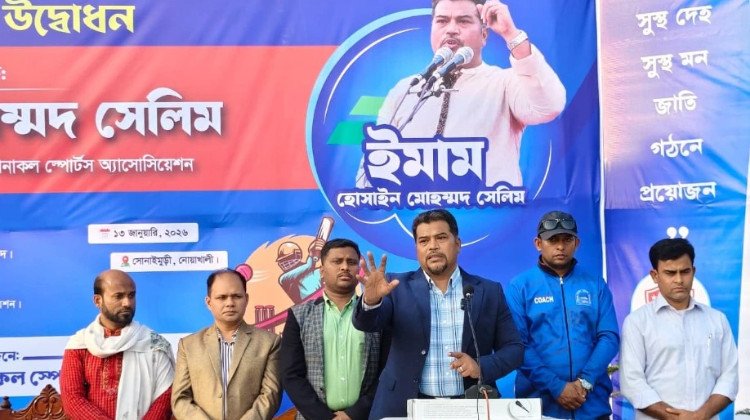
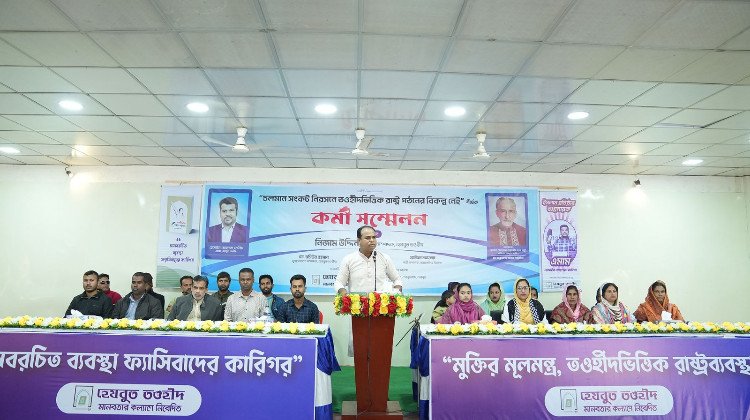
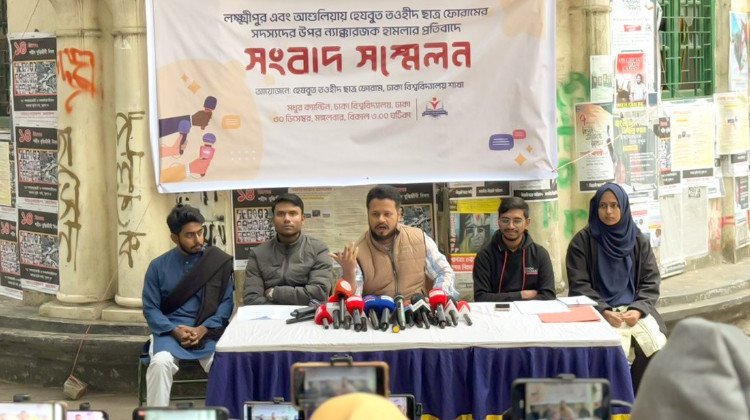
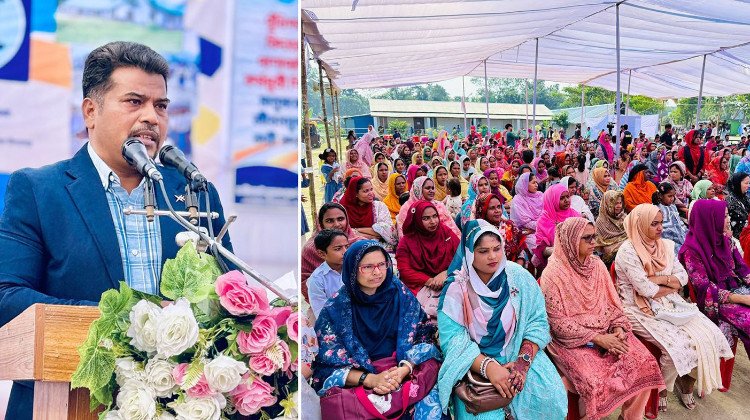
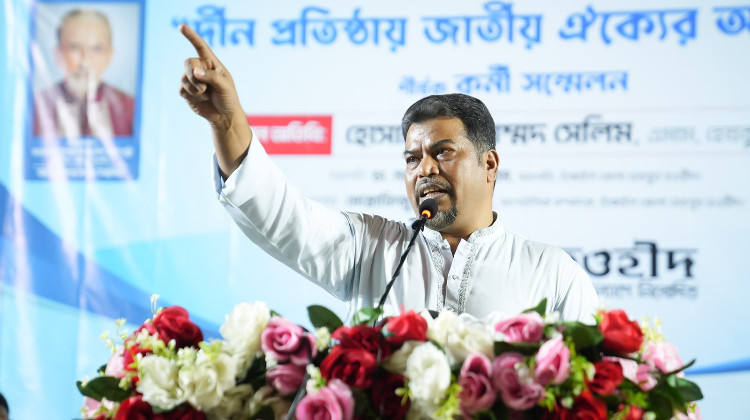
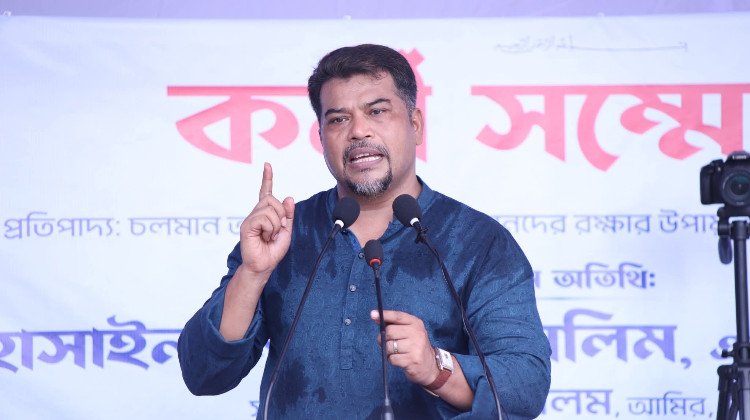
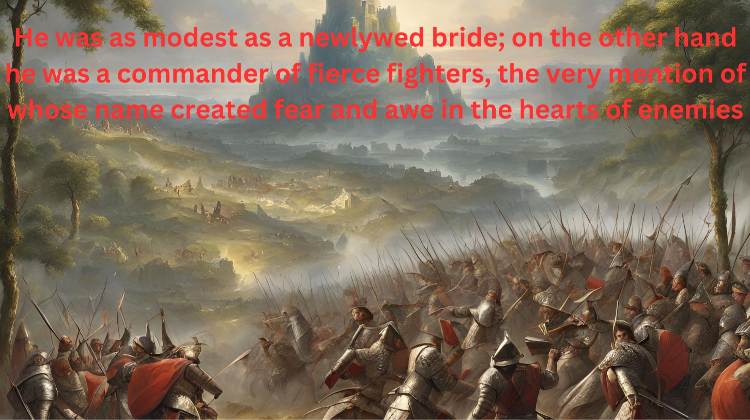
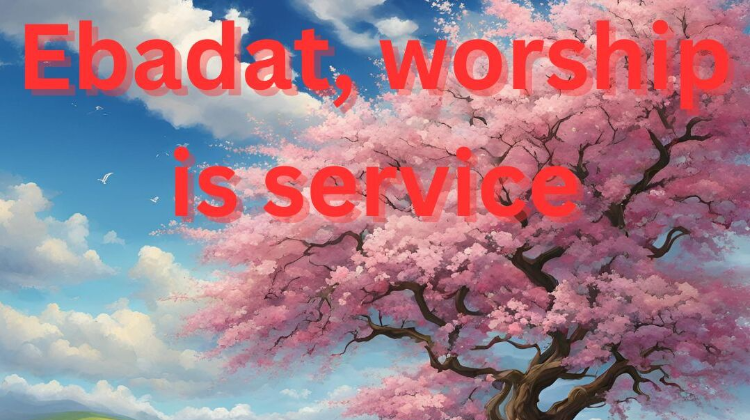

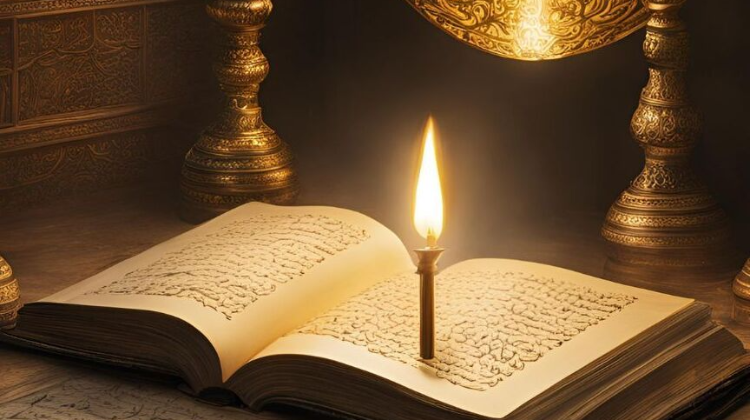
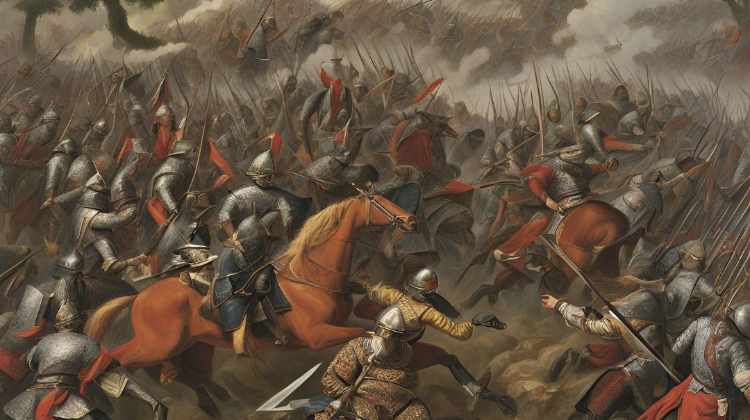
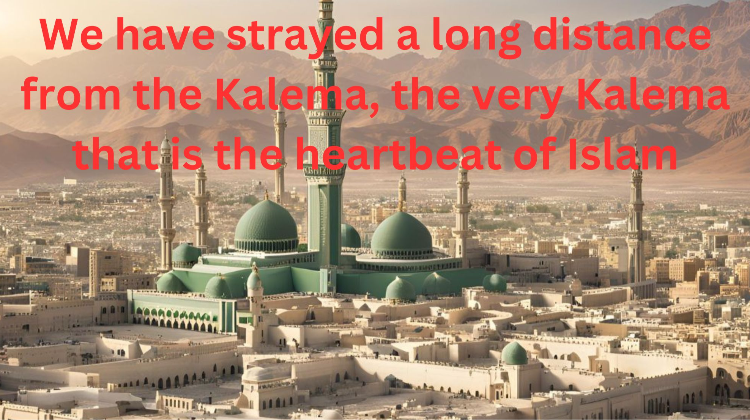
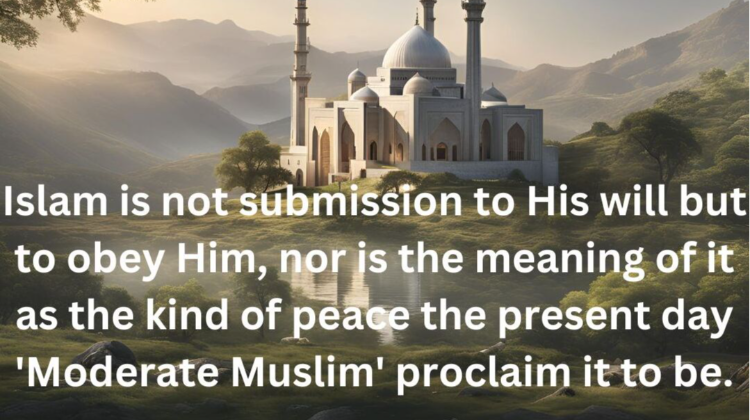
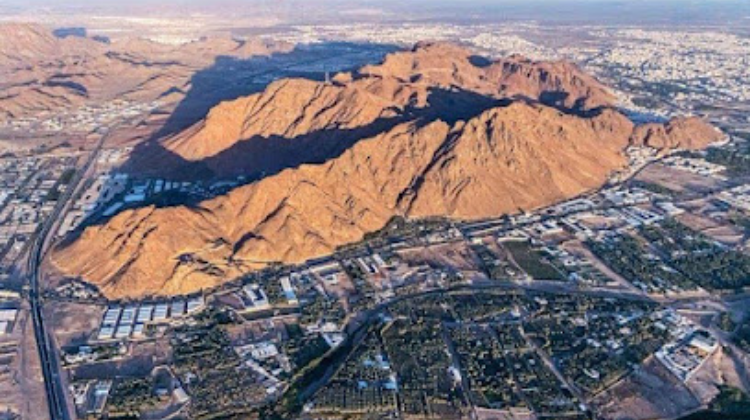
Leave a Comment